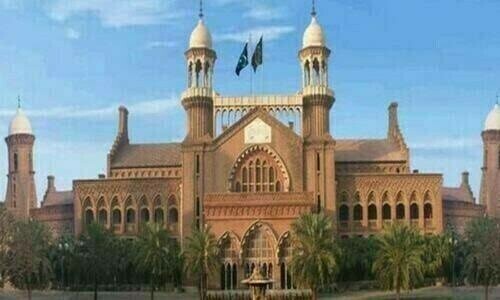The region at the lowest human development indicators in the country over the past 30 years and especially after 9/11, has received severe blows from the prolonged armed conflict. Its businesses, industries and agriculture have been crippled.
Officials in the FATA secretariat say that the region has sustained a loss of over Rs171 billion (over $2 billion) that do not include the losses caused by the current war and displacements in South Waziristan.
An official said, the damage to FATA economy was colossal due to closure of markets/businesses, increase in travel/freight costs, rising prices, joblessness, decrease in agriculture/industrial output and fall in transit trade with Afghanistan. About $1 billion was immediately needed for reconstruction and for various mega projects in the region, he added.
The destruction of infrastructure is estimated at Rs12.68 billion while the economic cost of terrorism (activity/transportation cost at 75 per cent of the above loss)is put at around Rs9.5 billion. The social cost is estimated at Rs88.8 billion while additional cost of security and rehabilitation of displaced persons require another Rs45 billion. The cost to the environment has been assessed at Rs15 billion.
More than 90 per cent of the FATA population derives its livelihood, directly or indirectly, from agriculture and livestock. It is mostly subsistence farming. Land use data from 2003-04 shows that just 0.2 million hectares or seven per cent of the total 2.8 million hectares of FATA land is under cultivation. And the farming sector has suffered badly.
“Damage to public assets in agriculture and livestock sector is estimated at Rs4.25 billion, with biggest losses recorded in Bajaur. Private assets worth Rs4 billion are estimated to have been damaged in the area.
Exports of off-season vegetables and fruits that were a big source of income for the locals have stopped. Farmers are feared to have incurred a loss of Rs9.5 billion annually.
The official said farmers were unable to cultivate various crops due to law and order situation or their displacement. “The availability of agricultural inputs or their high costs have also been a problem. Fruit orchards in the tribal belt go neglected. Livestock has been the biggest sufferer in the region for years now.”
The ongoing insurgency and terrorism have impacted the already limited economic activity. The cost of doing business, construction, living and transportation has increased manifold making people's lives more and more miserable.
While the area has been neglected by successive governments, things have been made worst by lack of private sector investment and the flight of human and capital resources from the area.
A Peshawar-based NGO employee working in a capacity-building project funded by USAID, said that different non-governmental organisations have been constrained to halt their activities.” Funding of new projects has been stopped while existing ones are stalled due to poor law and order situation. The area will definitely suffer if the projects are closed for long,” he said.
Only 23, 20 and 37 per cent work was carried out on three projects in the region.. The long awaited US proposal to open reconstruction opportunity zones (ROZs) in the tribal belt has yet to happen..
At a meeting of the Sarhad Chamber of Commerce and Industry, an industrialist complained that businessmen have to give taxes both to officials and Talibans.. “We are caught between the devil and the deep sea. We have to please both of them. Otherwise we can't work.”
Shop keepers attract few customers as a majority of the people survive on the relief items. Youngsters from the tribal belt employed in homes in various metropolitan cities have been relieved by their employers.
“Reconstruction and development of the region is a long-term project. It needs long-term commitment, investment and funding. The international community should generously fund the process. Pakistan and the world just cannot fail in FATA. Failure will bring devastation to the region,” he added.
“Lack of sufficient funds and of oversight, failure to utilise the available resources, low public and private investment and damage to public and private infrastructure by militants have depressed the level of economic activities”, he said.
Fata enjoys strategic location for cross border trade, possesses wealth of untapped resources and has expertise in fire-arm manufacturing. The government should capitalise on these strengths through increased public-private investment both national and international,” said Syed Abdullah, an industrialist.
“FATA is famous for arms cluster. It has large reservoirs of chromate, manganese, marble, quartz, soapstone, copper, emerald, coal and other treasures. As it is tax-free zone and cheap labour is abundantly available, investors should come here. But this requires strong public commitment and initiative in the region,” he said.
Interestingly, marble industries have been facing no difficulty and their businesses are thriving. “Our formula is simple. We have involved the locals with ourselves. We work with a spirit of compromise, of give and take with all stakeholders. We face no problem,” said Shahid R. Khan, the ex-chairman of marble industries association.
If projects are undertaken with active involvement of tribesmen on partnership basis that would definitely succeed.
The Sustainable Development Plan 2006-2015, prepared by Fata secretariat with an estimated outlay of Rs124 billion could be a good start.
The plan proposes Rs10 billion for agriculture, Rs3 billion for industry and Rs5 billion for mining. It envisages improvement of 1000 km existing roads at a cost of Rs6.87 billion and an expressway at a cost of Rs19 billion to provide effective communication link between tribal belts.










































Dear visitor, the comments section is undergoing an overhaul and will return soon.